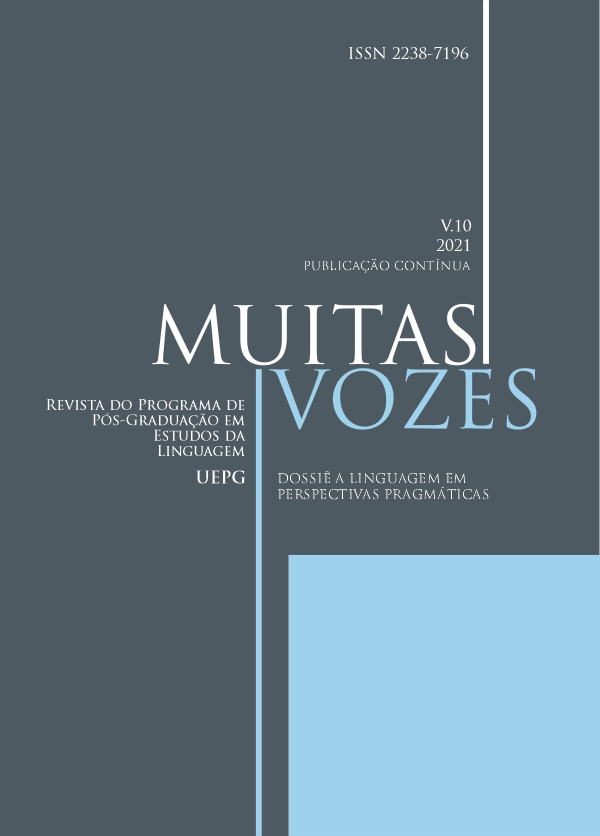PANDEMIOLOGIA DAS REPRESENTAÇÕES OU UMA EPIDEMIOLOGIA DAS REPRESENTAÇÕES PANDÊMICAS
Resumo
Modelos de analogias virais para o estudo da distribuição de informações no âmbito da comunicação têm sido objeto de diferentes domínios: da epistemologia naturalista (DENNET, 1995/2017), da biologia evolutiva (DAWKINS, 1976, 1993), da genética populacional (CAVALLI-SFORZA, 2000), da antropologia evolutiva (BOYD; RICHERSON, 2005) e da epidemiologia cultural (SPERBER, 1985, 1994, 1996; WEISS, 2001; MORIN, 2016). Neste ensaio, proponho a ideia de que assim como - em um mundo globalizado - as doenças em populações humanas obtiveram potencial de disseminação de ordens pandêmicas (UJVARI, 2011), o fluxo globalizado de informações sob o impacto de novas tecnologias cognitivas (DASCAL, 2005) também obtém potencial de distribuição ecológica excedente às escalas epidemiológicas, atingindo níveis pandemiológicos. Articulo a ainda embrionária noção de ‘pandemiologia’ (CASTIEL, 1995; ISPIR, 2020; AKERMAN; CASTIEL, 2021) à Epidemiologia das Representações (SPERBER, 1985, 1996; LERIQUE, 2017) no que estou propondo como uma Pandemiologia das Representações. Para tanto, introduzirei duas bem-estabelecidas teorias que caracterizam a comunicação e o modo como elas estão diretamente implicadas em modelos virais para o estudo da distribuição ecológica de informações. Na sequência, apresentarei a epidemiologia das representações em sua formulação original, sugerindo sua ampliação rumo a uma pandemiologia das representações, a fim de serem monitoradas/analisadas informações projetadas para além de um limite ecológico. Finalmente, buscarei tipificar alguns dos fenômenos que poderiam ser mais atentamente estudados no quadro de agravamento da crise de saúde pública que assola o Brasil neste contexto da pandemia da COVID-19.
Downloads
Downloads
Publicado
Como Citar
Edição
Seção
Licença

Este obra está licenciado com uma Licença Creative Commons Atribuição 4.0 Internacional.
Transferência de direitos autorais: Caso o artigo submetido seja aprovado para publicação, JÁ FICA ACORDADO QUE o autor AUTORIZA a UEPG a reproduzi-lo e publicá-lo na REVISTA MUITAS VOZES, entendendo-se os termos "reprodução" e "publicação" conforme definição respectivamente dos incisos VI e I do artigo 5° da Lei 9610/98. O ARTIGO poderá ser acessado tanto pela rede mundial de computadores (WWW - Internet), como pela versão impressa, sendo permitidas, A TÍTULO GRATUITO, a consulta e a reprodução de exemplar do ARTIGO para uso próprio de quem a consulta. ESSA autorização de publicação não tem limitação de tempo, FICANDO A UEPG responsável pela manutenção da identificação DO AUTOR do ARTIGO.



